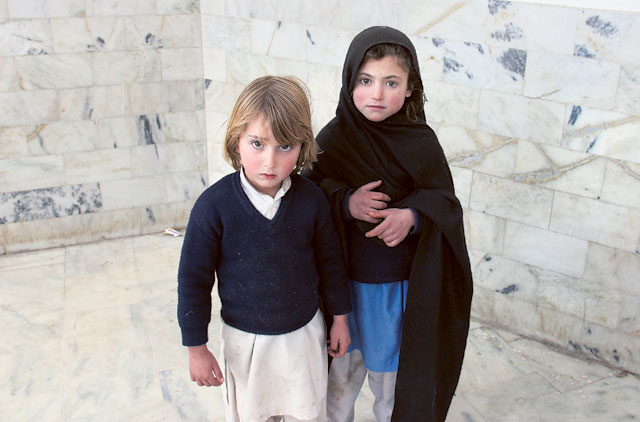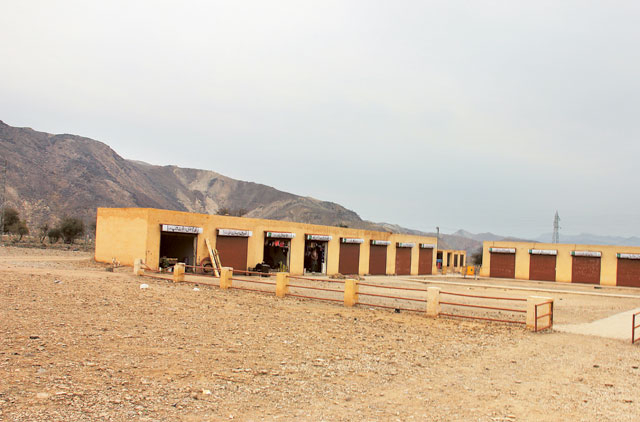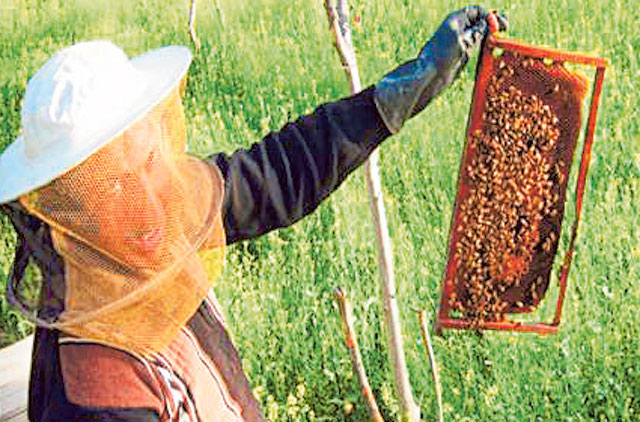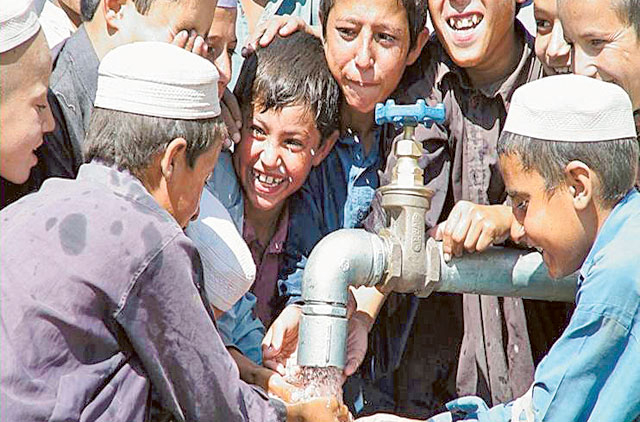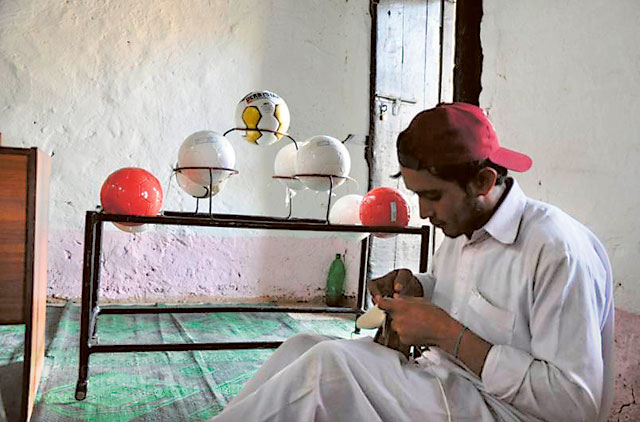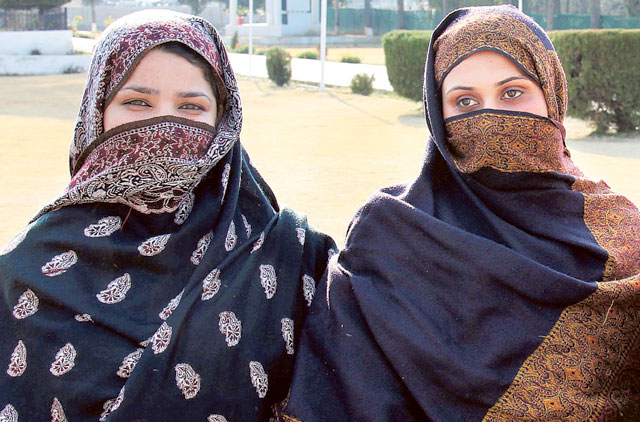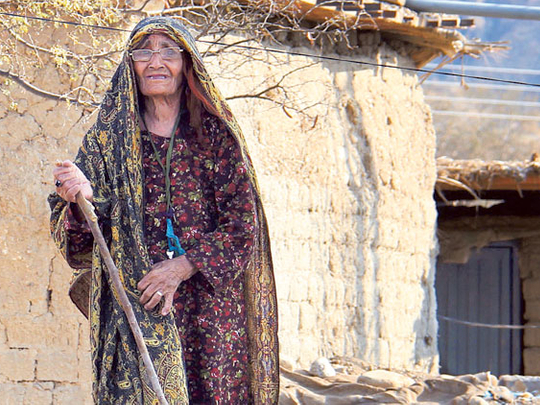
Kotkai: There is an old widow in this village in South Waziristan who is quite a favourite with the army officers as she regales them with tales of Hakimullah Mehsud, who happened to be her neighbour at one time.
Preferring to live in the ruins of her devastated home, she uses a new home the army has given her as a shelter for her goats.
About 200 of these widow homes have been given to women who lost their husbands and families during insurgent operations.
Besides these, community markets boasting new shops have been made in all rehabilitated villages. Interested villagers can rent shops at nominal rates and are provided with a fund to start their businesses.
Driving over the Tank Zam River bridge, towards the government school in Kotkai, you pass the sign for the Kotkai football academy. Plans to link this with Fifa may sound unbelievable now but considering the craze for football here, it should not shock if that happens. It’s common to see scores of youngsters throng the pitch.
The process of rebuilding homes and villages may have been gradual but now, with peace dividends coming in, there is increased attention on sports.
Cricket is a passion with the Mehsuds — the Cricket League tournament hosted in Chagmalai in October last year had 38 teams participate.
Favourite pastimes
The biggest hurdle for the social alleviation team in South Waziristan, headed by Colonel Asim Iqbal, has been to get the men to work.
Apparently, the Mehsuds are notoriously lazy. A favourite pastime is to sit on the roads for hours and watch the world pass by while their women walk for miles to collect water and firewood.
To induce people to work and not depend on food and aid from donor agencies and the government, efforts have been made to introduce new livelihood schemes.
According to Col. Asim, a few poultry farms were built initially — and these have led to demand for many more — as well as introduction of organised livestock farming.
While pear and apple orchards are common in South Waziristan, innovative techniques such as tunnel farming and cultivation of olive trees, blackberries, pine nuts and flowers are also being introduced in the lower hills. Honey is now being produced with implementation of efficient bee-hiving techniques.
Unfortunately, the area’s vast potential of minerals had been left unexplored due to the security situation in the area. The area is rich in iron, chromite and emeralds.
Football stitching began as a experiment and has since done well. New industries making cutlery and surgical instruments have also been introduced to boost the local economy. Similarly, an embroidery centre for women has been set up.
A positive trend is the rising demand for more schools for girls — especially beyond primary level.
While a new Government Girls High School in Chagmalai has recently started, other women interviewed by Gulf News wanted more schools in their villages to enable them to complete their studies. These are typically terminated at primary level.
There’s also a lack of teachers with education being sub-standard education. The Spinkai Cadet College in South Waziristan, which is temporarily housed in a technical college in Chagmalai, is highly popular among the locals who are clamouring to have their sons study there. It’s the best in the region.
Well-spoken and fluent in English, these boys have been carefully groomed to enable them to adjust well in any of the country’s top educational institutes.
There is a critical lack of female health workers in Waziristan and Bajaur is the lack of female health workers, though female army doctors are often sent as part of mobile medical camps treating women and children.
There is an urgent need for a resident female gynaecologist and paediatrician. Two Frontier Corps nurses, Sana and Sara from North Waziristan, told Gulf News that many girls in the area want to be medics.
“Nursing is a noble profession, one helps other human beings,” said Sana, who lives away from her family in Miranshah but has their full support.
“We learnt a lot and we would like to advice others also to join. Even more girls are now coming into nursing.”
In view of the unstable security situation, things in Pakistan are far from ideal.
There may be loopholes and institutional corruption that cannot be eradicated in one go — but there is also a positive change. The bright smiling faces of the girls and boys running towards in Sararogha village attest to that.


